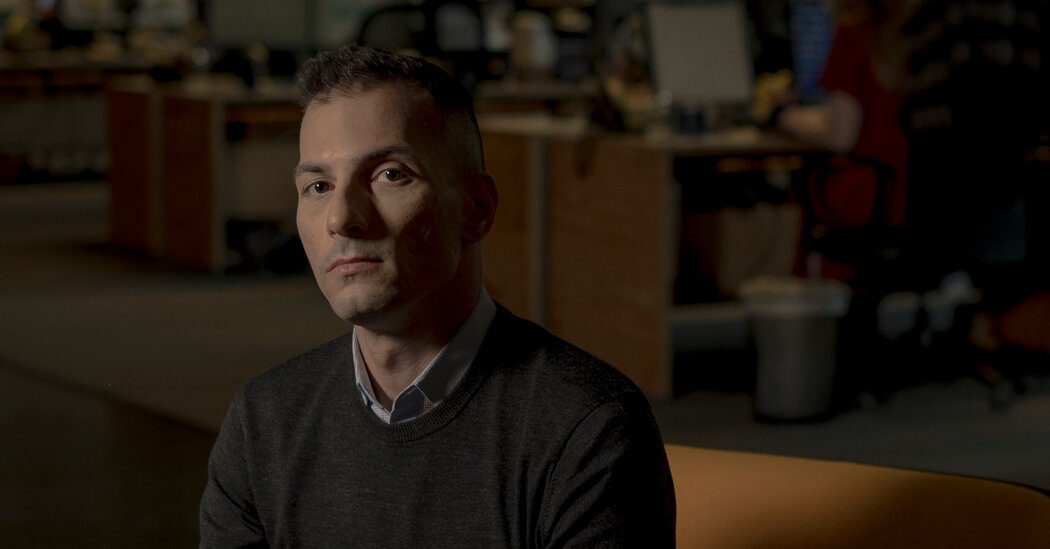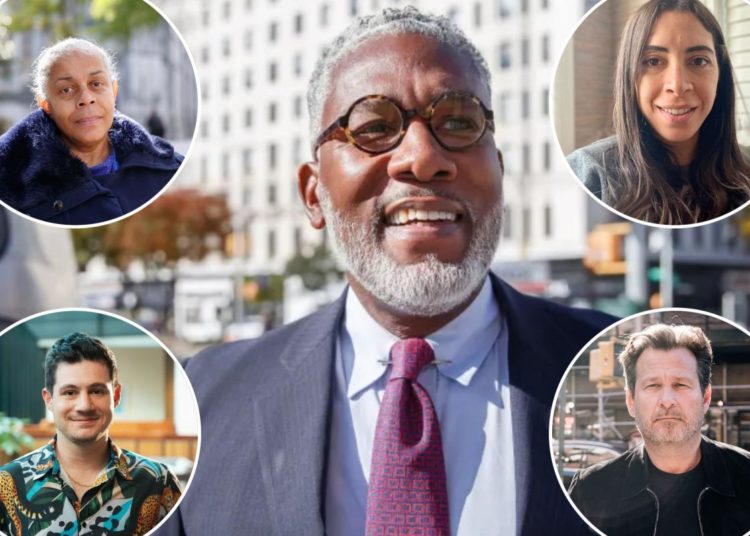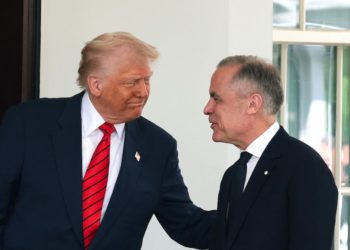Media Matters, a nonprofit group that has played a key role in liberal politics, is struggling to withstand months of legal assaults by President Trump’s allies, offering a glimpse of what might be in store for even well-funded targets of his retribution campaigns.
The organization, which is funded by some of the Democratic Party’s biggest donors, has racked up about $15 million in legal fees over the past 20 months to defend itself against lawsuits by Elon Musk, in addition to investigations by Mr. Trump’s Federal Trade Commission and Republican state attorneys general.
The group has slashed the size of its staff and scrambled to raise more cash from skittish donors, according to documents and interviews with 11 people familiar with the organization’s fight to survive.
That might not be enough. Media Matters tried to settle with Mr. Musk by offering concessions, but the sides were far apart and talks fizzled. Even when the group has triumphed in court, Mr. Musk has appealed or filed new cases elsewhere. As a last resort, it has considered shuttering, according to interviews and an internal document.
Publicly, the group has said that it has no plans to close, and that it is committed to defending itself as a matter of principle.
“Unlike some major media entities that have recently caved to pressure, we understand that this battle is larger than us,” Angelo Carusone, the president of Media Matters, said in a statement. “That’s why we continue to carry out our mission and fight in court.”
Even as the battle continues, Media Matters stands as an example of how legal warfare waged by powerful ideological opponents can squelch influential voices and stifle political dissent. The group says it has dialed back its criticism of Mr. Musk and the Trump F.T.C. Media Matters has also been frozen out by some allies. And it has faced plummeting staff morale, rising infighting and security concerns.
All that has proved quite a change in fortune for the influential group.
Media Matters raised nearly $250 million in the two decades between its creation in 2003 and the end of 2023, establishing itself as a force in Democratic politics by effectively undermining major right-wing media figures and politicians.
The bleak outlook now facing the group underscores the serious harms that can be inflicted when the Trump administration and its allies train the vast resources of government or billionaire bank accounts on perceived enemies.
It leaves targets facing a tricky choice: whether to spend heavily and fight back, or negotiate settlements that risk backlash for abandoning their convictions.
Case in point: The parent companies of ABC News and CBS News were criticized for caving to Mr. Trump when they agreed to donate millions of dollars to his presidential library foundation to settle lawsuits that experts believe the media outlets could have won in court.
Elite law firms diverged in strategy when they were targeted by the Mr. Trump administration with executive orders and inquiries after their lawyers worked against him or his administration. Those that fought back worried about losing clients and revenue, but have prevailed in court. Those that struck deals have lost several top partners discomfited by what some saw as a capitulation.
When Harvard refused to comply with demands from the Trump administration, $2.2 billion in federal research funding was withheld.
The Global Alliance for Responsible Media, a nonprofit group, shut down last year rather than defend itself against a lawsuit brought by Mr. Musk’s social media platform over research accusing the platform of enabling hateful online content.
Targeting Donors
Media Matters has been defending itself on more legal fronts and for longer than most targets of Trump allies, and its identity is more fundamentally linked to fighting Republicans and their allies. It is also particularly susceptible because of its dependence on maintaining the confidence — and confidentiality — of rich Democratic benefactors.
Founded in 2003 by David Brock, a self-described “right-wing hit man” who switched sides and became an enforcer for Democrats, Media Matters set out to neutralize what Mr. Brock saw as a powerful Republican information ecosystem. The group became the flagship in a constellation of nonprofits formed or acquired by Mr. Brock to help Democrats and undermine Republicans.
Media Matters is made up of two separate nonprofits registered under sections of the tax code — one for charities and the other for social welfare groups — that allow them to accept contributions without publicly disclosing donors’ identities, or so-called dark money.
Some major donors have been revealed through news reports or voluntary disclosures, including the investor George Soros, the clothing entrepreneur Susie Tompkins Buell and the hedge fund manager Stephen F. Mandel Jr.
Initially, Media Matters targeted conservative talk radio and Fox News through fact-checking, advertiser boycotts and what Mr. Brock described as “guerrilla warfare and sabotage.”
Mr. Carusone took over as president in late 2016 and began trying to recast the group as more of a journalistic outlet covering the rise of the so-called alt-right, and of misinformation and hateful content online, including social media. Mr. Brock stayed on as chairman, but ceded day-to-day control, and eventually left the group in 2022.
Mr. Musk had purchased Twitter earlier that year, and had begun removing content moderation rules. Media Matters homed in on the platform, which Mr. Musk later renamed X.
In November 2023, Media Matters published research showing that ads appeared on X next to antisemitic and pro-Nazi content. The report — along with a post in which Mr. Musk endorsed an antisemitic conspiracy theory — contributed to an advertiser exodus from X that cost the company more than $75 million in revenue through the end of that year.
Later that month, X sued in federal court, claiming that Media Matters had “manipulated” the site to bypass safeguards and display advertisements next to incendiary posts in an effort to damage X’s relationships with advertisers. In a December 2023 livestream on X, Mr. Musk took aim at Media Matters, telling listeners, “We will pursue not just the organization, but anyone funding that organization.”
Mr. Musk and X did not respond to requests for comment.
The suit was quickly followed by investigations from the offices of Republican attorneys general Ken Paxton of Texas and Andrew Bailey of Missouri, probing Mr. Musk’s claims that the group had manipulated data in its research about X and suggesting donors in their states may have been misled.
Media Matters sued, and a federal court blocked the Texas investigation, ruling that the state attorneys general were likely infringing on the organization’s First Amendment rights. Missouri agreed to drop its investigation. Still, the legal fights cost Media Matters nearly $2 million.
Mounting Bills and Disputes
After Mr. Trump retook the White House last fall, Mr. Brock was brought back into the Media Matters fold to help navigate the X litigation. But he soon clashed with others, and has been sidelined.
Some involved in the group wanted it to consider declaring bankruptcy or making concessions to settle the litigation, since Mr. Musk, the world’s richest man, seemed undeterred by the cost or setbacks. X filed lawsuits against Media Matters in other countries, including Singapore and Ireland, in what lawyers for the advocacy group called “a vendetta-driven campaign of libel tourism.” When a U.S. federal court ruled that the Irish case should be shut down and the Singaporean one paused, X appealed.
In early February, frustrated by what some at Media Matters saw as the high cost and slow pace of their lawyers at the influential Democratic firm Elias Law Group, the advocacy group began transitioning the X cases to different law firms. An Elias lawyer notified the group that it owed roughly $4 million.
“We understand this case has been and remains very difficult for everyone involved, as was Musk’s intention when he brought it,” Ezra Reese, the chair of Elias’s political law group, wrote in an email to Mr. Carusone and Media Matters’s lead fund-raiser, Mary Pat Bonner.
Mr. Reese offered to wipe away about half of the unpaid tally in exchange for payment of $2.25 million within about a week. If the group did not commit to the payment plan, Mr. Reese wrote, his firm would expect full payment of the original amount and would “go pens down and take steps to withdraw from the case by the end of the month.”
The ultimatum did not sit well inside Media Matters.
“You must be kidding!!” Ms. Bonner responded to Mr. Reese. “This is how you treat people who have been clients for 16 years and are friends?”
In a statement to The New York Times, Mr. Reese defended his firm’s work, noting that it helped with matters including the effort to shut down the state attorneys general investigations. “These victories,” he predicted, would help Media Matters and other organizations “stand up to politically-motivated investigations and lawsuits brought by the right wing.”
While Elias Law Group continued representing Media Matters on some matters, the advocacy group shifted much of its defense to other law firms, including Susman Godfrey.
The new legal team in April worked to reach a settlement with X’s lawyers. X demanded that Media Matters retract its report about antisemitic content, pay X all the money left in the group’s bank account and shut down. Media Matters proposed explaining its methodology in its report, adding a statement from X and donating to a mutually agreed charity.
No deal materialized. Media Matters soon had even more worries.
In May, the F.T.C. launched an investigation into whether Media Matters and roughly a dozen other watchdog and advertising groups illegally colluded to dissuade companies from buying ads on X and other platforms. The commission’s investigation echoed Mr. Musk’s claims and sought similar internal information about Media Matters, including communications with other watchdog groups that monitor social media and news outlets.
The F.T.C. declined to comment.
‘Chill and harms’
Inside Media Matters, the F.T.C. investigation was seen as an example of the Trump administration doing the bidding of Mr. Musk. Andrew Ferguson, the F.T.C.’s chairman, suggested before he was chosen to lead the agency that advertiser boycotts might violate antitrust laws. He praised Mr. Musk’s purchase of Twitter as helping to preserve “the free exchange of ideas that’s so indispensable to the American way of life.”
While Mr. Trump and Mr. Musk have feuded of late, the Trump administration has continued its investigation, underscoring an alignment based on shared enemies that may outlast the personal alliance between the two men.
In June, Media Matters sued to halt the investigation, arguing that the F.T.C. was using “sweeping governmental powers to attempt to silence and harass an organization for daring to speak the truth.”
In the lawsuit, Media Matters’ lawyers wrote that the F.T.C. investigation “caused many Media Matters reporters, writers and researchers to pare back their investigative journalism, especially on any topics that could be perceived as relating to the F.T.C. or its investigation.”
The legal situation also impaired the group’s ability to recruit and retain employees, according to the lawsuit.
Remaining staff members have expressed concern for their safety amid a torrent of threatening messages, requiring the group to hire an outside security firm, according to an internal memo laying out what it called the “chill and harms” of the legal attacks.
The memo, prepared for the group’s lawyers and reviewed by The Times, indicated that allies of the group have “pulled back communications with us or ceased proactively engaging with us,” while some donors and funders delayed or withheld gifts because they feared retaliation.
Mr. Mandel, in a meeting in Connecticut this spring, suggested to people raising money for Media Matters that the group should consider shutting down — a possibility that the memo also had broached.
But Mr. Carusone in his statement suggested that was not being considered, casting the legal assaults as “a revenge campaign against Media Matters intended to stymie or stop us entirely from exercising our constitutional rights.”
Kenneth P. Vogel is based in Washington and investigates the intersection of money, politics and influence.
Kate Conger is a technology reporter based in San Francisco. She can be reached at [email protected].
Ryan Mac covers corporate accountability across the global technology industry.
The post Under Siege From Trump and Musk, a Top Liberal Group Falls Into Crisis appeared first on New York Times.




